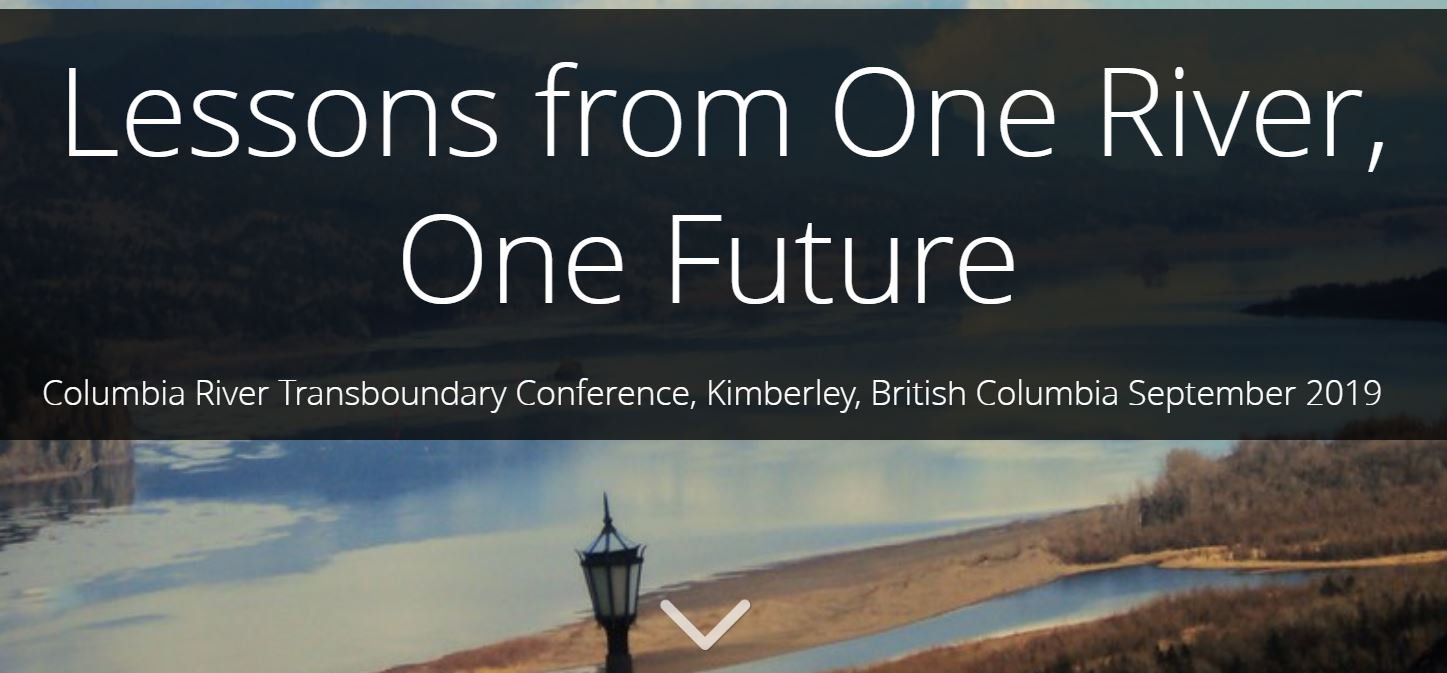Students Produce Web-based Synopsis of 2019 Columbia River Transboundary Conference
- March 16, 2020

Students and faculty from the University of Idaho and Washington State University recently completed a storymap to share information and outcomes from the 2019 International Columbia River Transboundary Conference, which was held in September in Kimberley, British Columbia. Students and faculty conducted interviews with key speakers at the conference and produced the storymap as part of the Law of the Columbia River, Water Resources Program class at the University of Idaho. Here is a link to the storymap.
Questions about the storymap should be directed to Professor Barb Cosens of the University of Idaho law school, bcosens@uidaho.edu.
Every five years since 1998, the Council and its closest counterpart agency in British Columbia, the Columbia Basin Trust, have co-sponsored a conference on the international Columbia River. A total of 288 people from Canada and the United States attended the 2019 conference.
The conference focused on specific issues related to the international Columbia River, including the impacts of climate change; the future of the Columbia River Treaty; the problems caused by invasive species and the responses to them; reintroduction of anadromous fish to the Columbia above Chief Joseph and Grand Coulee dams and into British Columbia; the future of energy, including hydropower and aggressive development of renewable resources in both countries; and a proposal to improve and better coordinate governance of the river.
Co-hosts of the conference were the 2019 chairs of the Trust and Council, Rick Jensen and Jennifer Anders, respectively. The conference also had leadership from Columbia Basin Tribes and First Nations. Assisting Co-Chairs Jensen and Anders were Margie Hutchinson, a member of the Colville Confederated Tribes Business Council, and Joe Pierre, chief of the ʔaq'am Community of the Ktunaxa Nation. A significant portion of the conference was created and directed by First Nations and Columbia Basin Tribes, and the conference was held in the traditional territory of the ʔaq'am Community.
The conference also included a trip for all participants to Columbia Lake, headwaters of the river, where First Nations and the Columbia Basin Tribes conducted cultural ceremonies and guides offered tours of the headwaters springs that flow into the lake.



